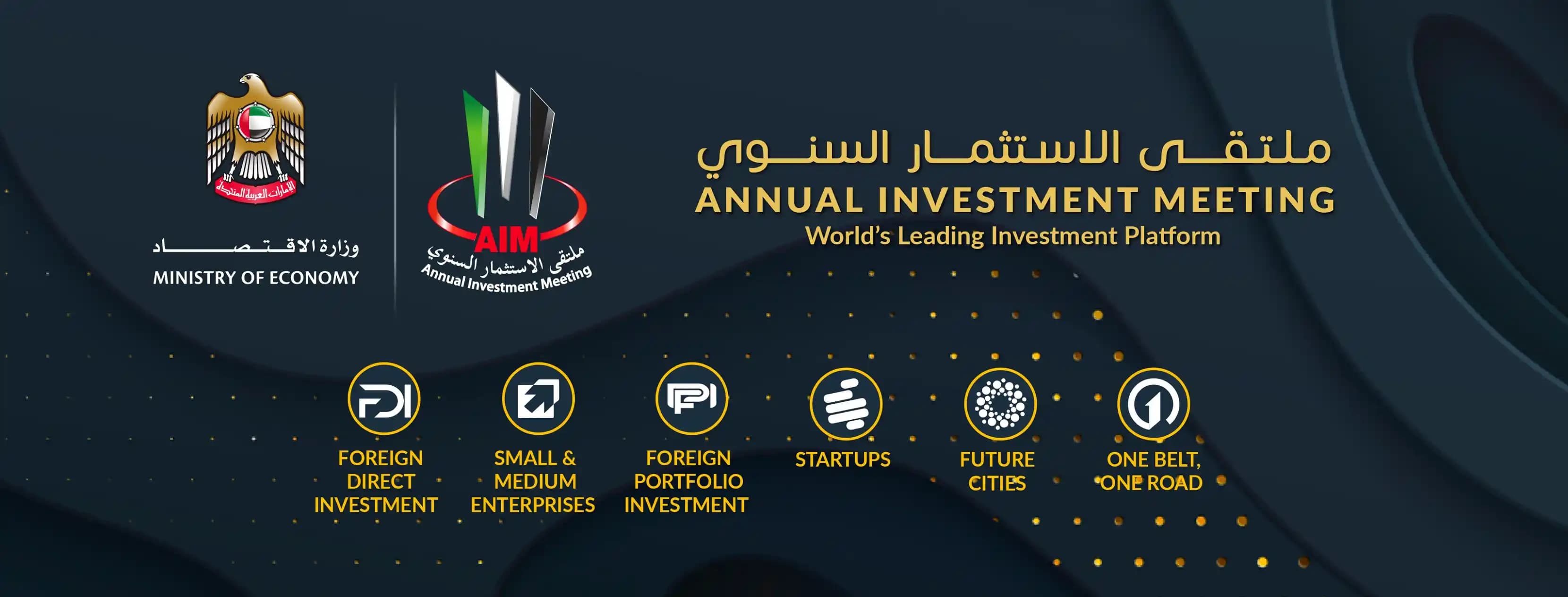As the pressure is mounting on cities administrators worldwide to optimize urban service management through efficient infrastructure, smart cities solution providers and policymakers, in turn, are taking the best transformational adaptations to deliver higher-quality city services more efficiently.
This is the gist of the session that will be hosted by the Annual Investment Meeting 2022, in partnership with WEIF 2022, on March 30th, 2022, at Dubai Exhibition Centre, EXPO 2020 Dubai - under the title of “Smart Services of the Future: FDI and Technology Adoption trends, the Shift in Smart Services and What to Look Forward to in the Future (Green and Blue Economy)”.
That said, let’s move on to an important question: What will this high-level gathering discuss?
Future Cities | Mix of FDI & Hi-tech
The AIM 2022’s 1st Future Cities Pillar Session is poised to focus upon a set of vital topics, including FDI & technology adoption trends, the shift to smart services, and what to hope for in the cities of the future - with a special emphasis on Green and Blue Economy.
There’s no doubt that throughout history, no nation has ever achieved economic development without urbanizing. Therefore, the current global urbanization trend, that is dominating our century, is good for both the nations experiencing this growth and the global economy at large.
All over the world, cities are growing at a rapid rate, with people continuing to move to these urban centers, seeking better economic, social, and creative opportunities. Further, these rising cities are dense in terms of land use and are, simultaneously, difficult to govern due to their diverse social and economic fabric. While cities are combating such problems as economic development and climate change, they, still, need to do so with fewer resources as they face budgetary constraints and battle with increasing devolution of funds and functions. Moreover, city administrations are progressively facing the dire need to foster urbanization patterns that are sustainable - socially, economically, and environmentally.
For that reason, the panelists of the AIM 2022’s 1st Future Cities Pillar Session are expected to make clear that even though we need to maximize the use of state-of-the-art technology as a silver-bullet solution to address rising urban problems, yet cities administrators still need to drastically transform urban planning, urban governance, and regulatory aspects with the purpose of optimizing urban service management through efficient infrastructure. Additionally, city solution providers and policymakers have to continue taking the optimal transformational adaptations that aim to deliver higher-quality services more efficiently.
AIM’S 2022’s 1st Future Cities Pillar Session
The Panellists at the AIM 2022’s 1st Future Cities Pillar Session are Dr. Terry Taminen, President of 7th Generation Advisors / Regions 20; Rawya Mansour, Chairman RAMSCO Group, Egypt; Mohamed Moselhy, Regional Vertical Leader for Smart Cities in the Middle East, Turkey & Africa (META), Honeywell Building Technologies; Dr. Wu Jianbo, Secretary-General, Green & Smart Energy Organization ; John Wensveen, Chief Innovation Officer, Nova Southeastern University; and Hatem Mohammad AbouOllo, Founder, Saber Incubators & Accelerators, KSA.
They will explain, to the session attendees, how future smart cities are increasingly contributing to meeting the ever-growing demands of the world population.
Also, the panelists will highlight that information and communication advancements will empower better administration of accessible resources in the cities of the future, where the well-being of the smart city citizens are assured in cities that have adequate intellectual resources and proper institutions as well as developed infrastructure.
What’s more, the renowned experts will emphasize that the unique context of each smart city will be shaping the technological, organizational, and policy aspects of that city, with the overall smart city model being viewed as a contextualized interplay among technological innovation, managerial & organizational innovation, and policy innovation.
That said, the AIM 2022’s 1st Future Cities Pillar Session will also discuss the innovation in the area of future cities management, highlighting a comprehensive framework to view the smart city movement as innovation comprised of technology, management, and policy, and, last but not least, focusing on the concept of Green and Blue Economy.
Future Cities | Green & Blue Economy
Last but not least, the session panelists will shed light upon the concept of the green and blue economy in the cities of the future.
The green economy is an economy that results in improved human well-being and social equity, while significantly reducing environmental risks and ecological scarcities. Blue economy, on the other hand, is the sustainable use of ocean resources for economic growth, improved livelihoods, and jobs while preserving the health of the ocean ecosystem.
The panelists at AIM 2022’s 1st Future Cities Pillar Session will highlight that the green economy and blue economy are poised to turn into part and parcel of what the future will look like in the cities of the future across the globe.
